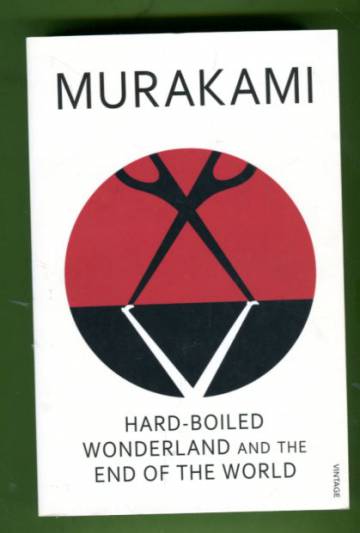

A talking cat accompanies a small boy on his adventures, the boy eating a lot of diner food and not really doing much but hanging out at the library. A depressed hippy juggles his daily life - student and record-store shop employee who occasionally trolls for women with his amoral college roommate - with his intensely personal life - a boy growing into a man, learning about love, heartbreak and death. If you like Murakami, you'll like it, although it doesn't blend the two twisted sides of Murakami's writing as well as a book like "Norwegian Wood" or "Kafka on the Shore." In each of those novels, the reader gets transitions within chapters, and his talents for myth-telling in both the mystical and mundane worlds is woven together like two different colored pieces of yarn, fraying and blending at the end. This is your brain on Murakami (an egg sprouting arms and legs and attempting to hump other eggs while doing the Electric Slide and attempting to save the world to a killer soundtrack). Some of his novels take their titles from songs: Dance, Dance, Dance (after The Dells' song, although it is widely thought it was titled after the Beach Boys tune), Norwegian Wood (after The Beatles' song) and South of the Border, West of the Sun (the first part being the title of a song by Nat King Cole). Many of his novels have themes and titles that invoke classical music, such as the three books making up The Wind-Up Bird Chronicle: The Thieving Magpie (after Rossini's opera), Bird as Prophet (after a piano piece by Robert Schumann usually known in English as The Prophet Bird), and The Bird-Catcher (a character in Mozart's opera The Magic Flute). Shortly before finishing his studies, Murakami opened the coffeehouse 'Peter Cat' which was a jazz bar in the evening in Kokubunji, Tokyo with his wife. His first job was at a record store, which is where one of his main characters, Toru Watanabe in Norwegian Wood, works. Murakami studied drama at Waseda University in Tokyo, where he met his wife, Yoko. He grew up reading a range of works by American writers, such as Kurt Vonnegut and Richard Brautigan, and he is often distinguished from other Japanese writers by his Western influences.

Since childhood, Murakami has been heavily influenced by Western culture, particularly Western music and literature. His work has been described as 'easily accessible, yet profoundly complex'.

Murakami Haruki (Japanese: 村上 春樹) is a popular contemporary Japanese writer and translator.


 0 kommentar(er)
0 kommentar(er)
